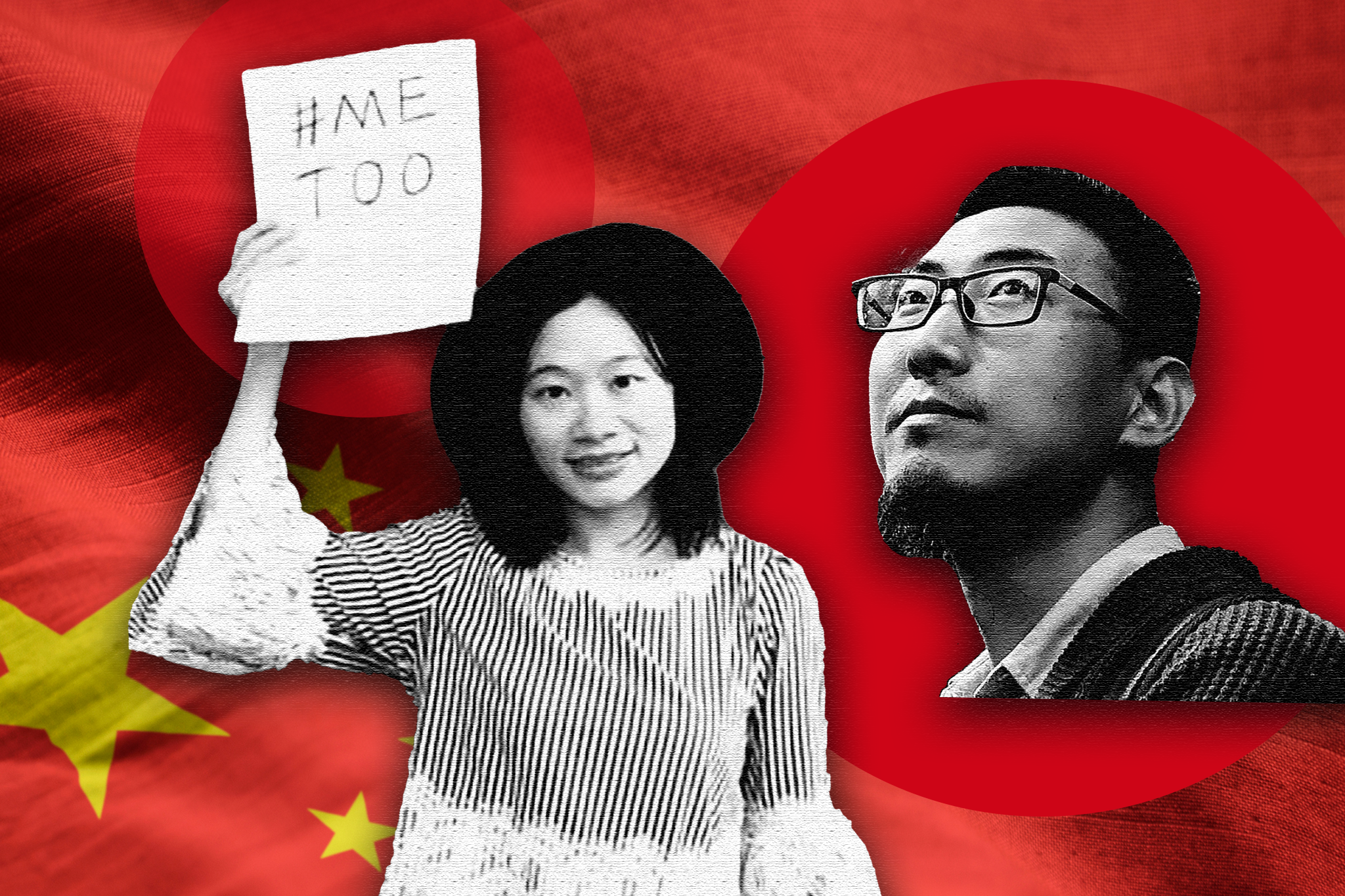Top-secret trial of MeToo journalist spotlights China’s use of security laws to ‘stop people speaking up’
There is international outrage over the closed-door trial of two prominent Chinese rights activists after two years of ‘arbitrary detention’, reports Alisha Rahaman Sarkar

One of China’s leading #MeToo activists and a top labour rights advocate have been tried behind closed doors on charges of “subversion”, their supporters say, in conditions of intense secrecy remarkable even by the standards of Xi Jinping’s authoritarian government.
Journalist Sophia Huang Xueqin was put on trial on the charge of “inciting subversion of state power” along with labour activist Wang Jianbing on Friday, two years after they were detained by police in the southern city of Guangzhou.
The Independent has learned that the trial at the Guangzhou Intermediate People’s Court, which was held behind closed doors – a standard practice under the Xi Jinping government – has concluded.
But there is still no confirmation of the outcome of the trial, due to a total blackout of information regarding the case by the authorities. Roads around the courthouse were shut for hours before the proceedings on Friday and plain-clothes police swarmed the streets.
The duo were detained on 19 September 2021, a day before Huang was scheduled to visit the UK to begin her master’s degree programme at the University of Sussex on a British government-funded scholarship.
Since then, the activists have been held mostly incommunicado, denied access to family members or lawyers.
Related Articles
- 1Chinese government sentences famed Uyghur scholar to life in prison, foundation says
- 2A Chinese dissident in transit at a Taiwan airport pleads for help in seeking asylum
- 3Back in full force, UN General Assembly shows how the most important diplomatic work is face to face
Diplomats from seven Western countries, including Britain, US, Germany and France, were denied entry to the courtroom, supporters of the activists said.
“What we have documented and what many in civil society are seeing and have for a long time is that these trials are often box-checking exercises and that the decision to indict the individuals is more or less a guarantee of a guilty verdict,” Sarah Brooks, Amnesty International’s deputy regional director for China, told The Independent.
Ms Huang was one of the crucial voices behind China’s MeToo movement in 2018 and led the discourse by helping a graduate student go public with accusations against her PhD supervisor. The movement flourished briefly before it was stubbed out by the Communist Party, which fears civil movements to be a potential threat against the government.
She was previously arrested in 2019 following her coverage of the pro-democracy protests in Hong Kong.
A campaign group seeking the activists’ release said the charges of sedition were based on the gatherings the two held for young people at Mr Wang’s apartment, during which they allegedly discussed social issues.

“These meetings were informal. We talked, we laughed and discussed the obvious issues that ail our Chinese society amidst a clampdown on dissent,” an activist, who left the country fearing similar prosecution, told The Independent on condition of anonymity.
“The arrests and the subsequent prison sentences are methods weaponised by the administration to instil fear among the youth that they should refrain from speaking up,” he added.
No legal documents pertaining to their arrest have been made public. The announcement of the trial was made earlier this week, while the indictment, dated August 2022, was made public at the trial, according to Ms Brooks.
“So information is scant and that is an intentional tactic,” she said.
The charge "inciting subversion of state power" carries a maximum prison term of five years unless the suspect is considered a "ringleader" or to have committed "serious crimes".
At least 70 people associated with the activists were harassed and interrogated weeks after the duo’s arrest, the Chinese Human Rights Defenders network said.
Huang has been denied access to her family since her detention and had her lawyer replaced with government-appointed lawyers, according to Amnesty International.
There has been concern about her deteriorating health and mistreatment during the period of detention.
The other activist, Wang, is more known for his labour rights advocacy but has also helped women report sexual harassment. A United Nations working group on arbitrary detention determined in 2022 that Mr Wang was “arbitrarily detained”.
His father has been reportedly able to obtain some limited information, but it was uncertain whether he was able to speak to Mr Wang in person or over a teleconference.
“Their families are extremely worried about them,” a campaign group spokesperson told Reuters. “They are constantly visited and threatened by police, so they are scared to speak out or make contact with people overseas.”
In a joint statement, more than 30 international rights organisations have called for the “immediate and unconditional release” of the activists and urged the Chinese authorities to “stop harassing, arresting and threatening other human rights defenders”.






Join our commenting forum
Join thought-provoking conversations, follow other Independent readers and see their replies
Comments